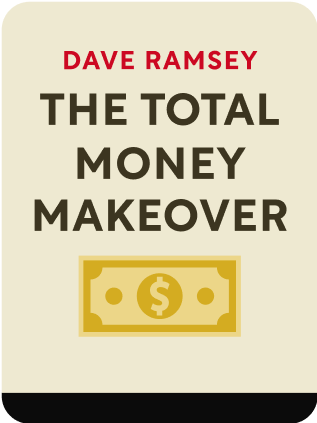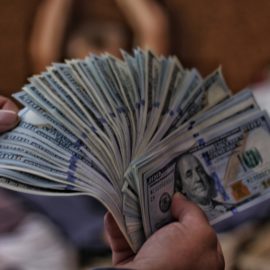

This article is an excerpt from the Shortform book guide to "The Total Money Makeover" by Dave Ramsey. Shortform has the world's best summaries and analyses of books you should be reading.
Like this article? Sign up for a free trial here .
Is lending money to friends a good idea? What about lending money to family?
Lending money to friends or family is generally a bad idea. It can be detrimental to your relationship and does the other person a disservice.
Read on for the Total Money Makeover advice about lending money to friends and family.
Lending Money to Friends and Family
Many people think they’re helping by lending money to friends. But a loan will be a barrier in your relationship because it creates a power dynamic where the borrower is the slave of the lender.
If you’re the borrower, the loan can create resentment or shame if you can’t pay it back. If you’re the lender, you’ll be judgmental about how the borrower spends her money as long as she owes you (you wonder why she’s going out to dinner or taking a vacation instead of using the money to pay you back). This applies to parents loaning adult children a down payment, or grandparents loaning a grandchild money. So lending money to family is also a bad idea.
If you value the relationship more than the money, the best recourse is to remove the master/slave dynamic by telling the borrower that you forgive the loan. This is better than lending money to friends. But if you do this, make two stipulations: that the borrower pay it forward by helping someone else someday, and that she never loan money to friends or relatives.
In the future, give money to friends or family if you want to, but remember that a loan will bring more harm than help. Lending money to friends and loaning money to family is more harmful in the long-run.
Cosigning a Loan
Like lending money to friends, people often have the impulse to help a family member or friend by cosigning a loan. But there are two big problems with this:
1) If you cosign a loan, there’s a good chance you’ll have to repay it.
2) You could end up ruining your own credit.
Regarding your risk of having to pay it back, consider these facts:
- Banks want to make loans.
- They’re good at predicting when someone is likely to default.
- Despite wanting to make loans, they’ve refused your friend or relative a loan (even while you’re considering loaning money to family).
- They only require cosigners when there’s a strong possibility of default.
In other words, the bank doesn’t expect your friend or relative to repay the loan—you’re ignoring the bank’s experience-based assessment, maybe because you feel you know the person better and are convinced he’ll pay. But if he needs a cosigner, he can’t afford the payments.
Parents often cosign loans for their children, thinking that they’re teaching financial responsibility—instead, they’re teaching irresponsibility by effectively loaning money to family. The message is that it’s OK to buy things you can’t afford.
Besides having to pay back the loan, the cosigner often ends up with ruined credit. For example, when you cosign a car loan, here’s what can happen:
- If payments are missed or late, your credit record will be hit each time without notice.
- If the car is repossessed, it will go on your credit record without notice.
- If the lender sells the car for less than the amount of the loan, you’ll be on the hook for the difference.
Even if you learn that payments aren’t being made, you can’t force the defaulter to sell the car—it’s not yours, although you have to pay for it.
If you really want to help someone, don’t cosign a loan—it’s too risky. Just give them money. It’s like lending money to family and better to just give them the money than create a toxic relationship.

———End of Preview———
Like what you just read? Read the rest of the world's best book summary and analysis of Dave Ramsey's "The Total Money Makeover" at Shortform .
Here's what you'll find in our full The Total Money Makeover summary :
- The 7 steps to achieving financial stability (you'll love #7)
- A fool-proof plan for becoming debt-free
- How myths about debt and money are crippling your financial health






